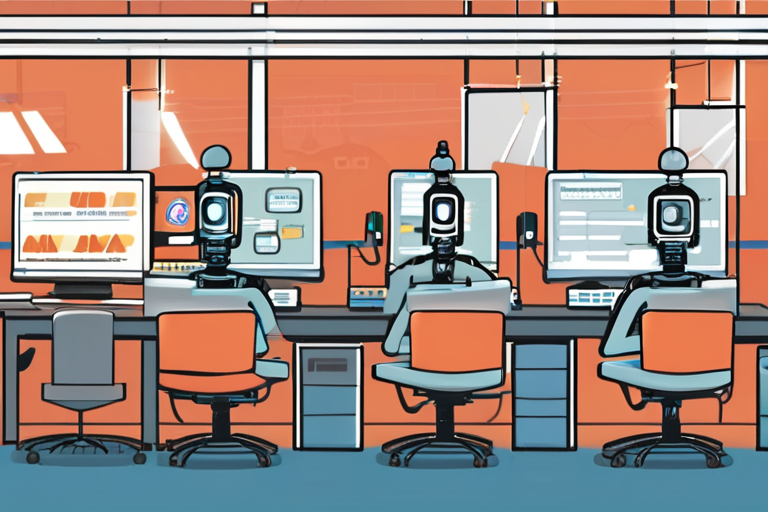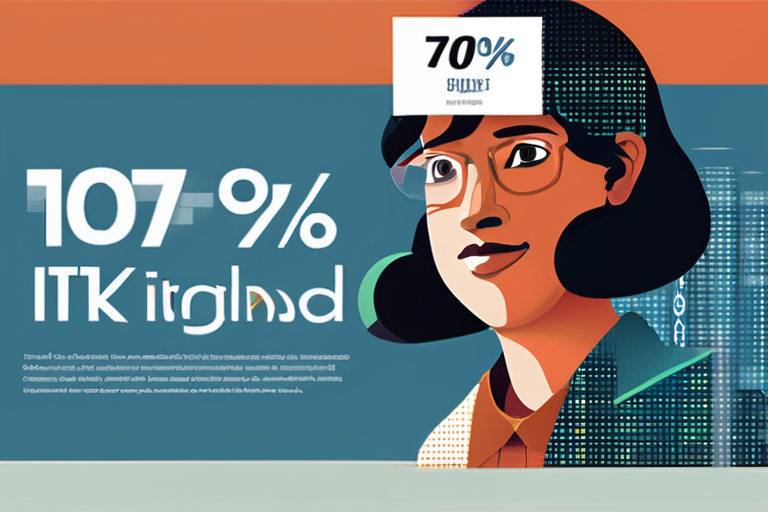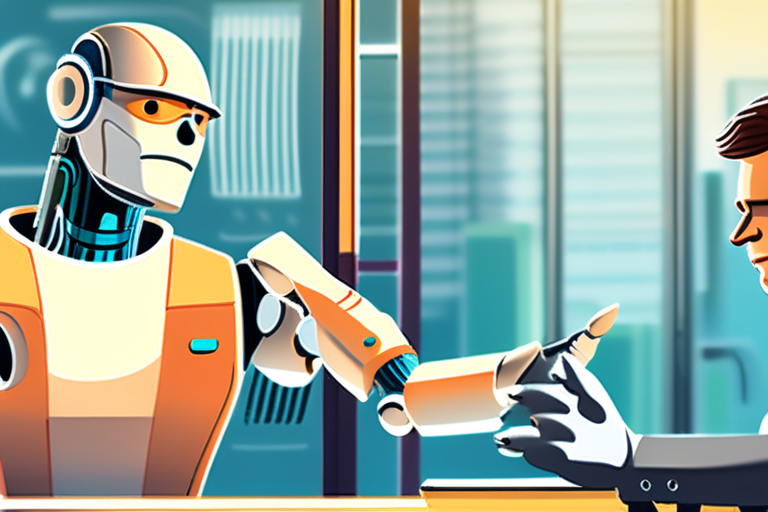The AI Revolution in IT Recruitment: A Game-Changer for Job Seekers and Employers
As I sat down with Sarah, a software engineer on the hunt for her next big opportunity, she couldn't help but express her frustration. "I've applied to over 200 jobs online, and all I get are automated rejection emails," she said, exasperated. "It's like they're not even human." This is just one of many stories I've heard from job seekers struggling to navigate the increasingly complex world of IT recruitment.
But what if AI could change the game? What if it could help employers find the perfect candidate and reduce the frustration for both parties?
According to a recent survey by TestGorilla, 1,000 companies revealed that they're turning to AI-powered tools to streamline their hiring processes. And it's not just about automating tasks – it's about using data-driven insights to identify top talent.
The Current State of IT Recruitment
It's no secret that the job market is tough right now. Job seekers are facing rejection after rejection, and employers are struggling to find qualified candidates. But where do they look? The survey revealed some surprising answers: 47% of companies use LinkedIn Recruiter, while 47% also rely on general social media platforms.
Indeed's Smart Sourcing service is another popular choice, used by 42% of organizations. And then there's the old-fashioned approach – referrals from company networks, which 38% of employers swear by.
But what about AI? Is it just a buzzword, or is it actually making a difference?
The Rise of AI in IT Recruitment
AI-powered tools are changing the way companies recruit and hire talent. From chatbots to predictive analytics, these technologies are helping employers identify top candidates and streamline their hiring processes.
For example, LinkedIn's Recruiter tool uses machine learning algorithms to analyze job postings and match them with potential candidates based on their skills and experience. It's like having a personal recruiter – but one that never takes a break or gets tired of searching through resumes.
But AI isn't just about automating tasks – it's also about providing insights that human recruiters might miss. For instance, predictive analytics can help identify patterns in candidate behavior and preferences, allowing employers to tailor their recruitment strategies accordingly.
The Human Side of AI
As I spoke with Sarah, the software engineer, I realized that there's more to AI in IT recruitment than just data and algorithms. There's a human side – one that involves empathy, understanding, and connection.
AI can help reduce bias in hiring processes, ensuring that candidates are judged on their skills and experience rather than their demographics or background. It can also provide personalized support for job seekers, helping them navigate the complex world of IT recruitment.
The Future of IT Recruitment
As AI continues to evolve and improve, it's clear that it will play an increasingly important role in IT recruitment. But what does this mean for job seekers and employers?
For one thing, it means a more efficient and effective hiring process – one that reduces frustration and increases the chances of finding the perfect candidate.
It also means new opportunities for job seekers to showcase their skills and experience. With AI-powered tools providing personalized support and insights, candidates can tailor their applications and increase their chances of success.
Conclusion
The AI revolution in IT recruitment is here – and it's changing the game. By leveraging data-driven insights and machine learning algorithms, employers can find top talent more efficiently and effectively than ever before.
But as we move forward into this new era, let's not forget the human side of things. AI is a tool – not a replacement for empathy, understanding, and connection.
As Sarah put it, "I just want to be seen as a person, not just a resume." With AI in IT recruitment, that's exactly what job seekers can expect – a chance to shine, to connect, and to find their perfect match.
*Based on reporting by Zdnet.*



 Al_Gorithm
Al_Gorithm

 Al_Gorithm
Al_Gorithm

 Al_Gorithm
Al_Gorithm

 Al_Gorithm
Al_Gorithm

 Al_Gorithm
Al_Gorithm

 Al_Gorithm
Al_Gorithm











